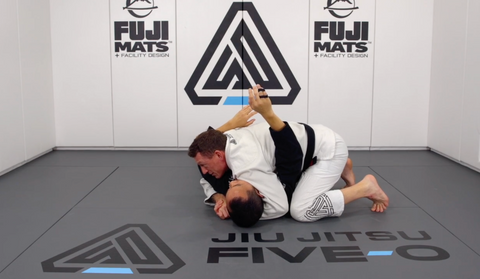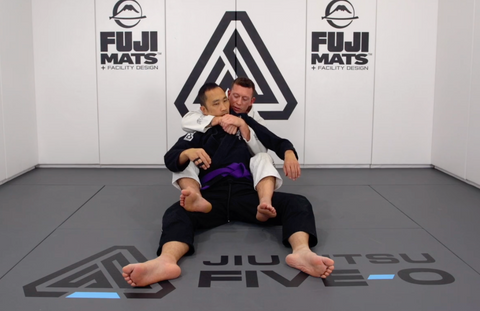Knee on Belly: Balancing Control and Compliance
One of the first fundamental control positions we teach in our Jiu Jitsu training courses for police officers is knee on belly. This position allows officers to maintain control over a suspect with minimal harm. The distribution of the officer's weight through the knee and shin can be adjusted to apply the necessary pressure for compliance. This position also gives officers better visibility and awareness of their surroundings, which can be extremely beneficial in volatile situations. Importantly, it also offers the mobility and flexibility needed for officers to transition quickly in response to other threats.

Side Control: Ensuring Dominance and Safety
Side control is another vital aspect of Jiu Jitsu training for police. It places the officer in a dominant position over the suspect, significantly reducing their ability to move or escape. This position is not only effective for restraining someone, but also minimizes the risk of injury to both parties. When done correctly, side control can also be a great way to wear someone out from the bottom, since they expend an exorbitant amount of energy trying to escape. This can eventually tire them out to the point that they want to give up. We also teach leg staples and different head control options from this position depending on what the suspect is doing from the bottom.

Back Mount: The GOAT of Control Positions
Considered one of the most dominant positions in Jiu Jitsu, the back mount is highly beneficial for police officers for a number of reasons. It grants complete control over a suspect, making it extremely difficult for them to attack or escape, wear them down by expending their energy and offers flexibility in restraint techniques, depending on the level of threat and resistance the suspect is presenting. In our opinion, back mount is one of the best control positions if the officer is fighting someone by themselves and needs to control them while waiting for backup. There are also a number of ways to hold someone in back mouth that can be modified or adapted to meet state laws and departmental policies.

If you have limited time to train and want to focus on specific positions for the street, start by adding these to the mix. Have your partner start in one of these positions and practice controlling them for the duration of a two or three minute round. This is one of the best ways to improve your control skills for the street and make your training realistic. It will also show you area for improvement in real time.







